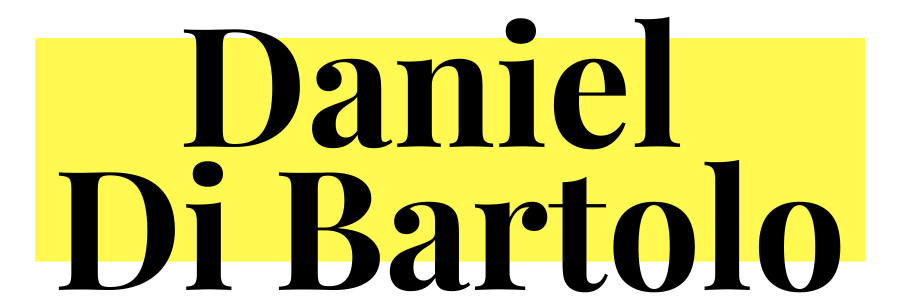My 2019 Productivity Report

The metrics on getting things done in '19
Todoist, the tool I use to manage personal and professional life, just released my 2019 Year in Review. Every year, they release a personalized report for every user. It includes broad data about when and how you get stuff done. It's awesome! 🤓
I wanted to share some quick thoughts with you all– to tell you about one of my favorite tools, and to share some reflections on my numbers.
We'll cover:
- Why I like Todoist
- Highlights from 2019
- Changes I'd like to make in 2020
Make sure to read the nitty gritty and read my report in full before reading my analysis. Hit the link below 👇

Why Todoist?
Both the nature of my job (building software at scale) and personality (I love variety and diversity of projects) mean that at any point I could have 5-15 disctinct projects I'm working on.
I use Todoist to remember what's important and to triage the commitments I make to myself and to other people. It's a flexible tool, and you can configure it to meet your needs. Most people can get by with the free plan, but I pay for Premium (only ~$3/m) so that I can templatize projects and use filtering.
For me, it's nothing fancy. I've adapted my workflow to David Allen's GTD methodology, which you can learn about here.
I love that they have reliable mobile apps, and I keep their web app in a Safari pinned-tab most of the time.
Natural language processing makes it easy to say "Send invoice by Thursday at 7pm" and it'll know what to do.
It's my favorite piece of software that I use on a daily basis– and my love only grows as they add new features and as I improve my own system.
Here's what I see when I open up Todoist:
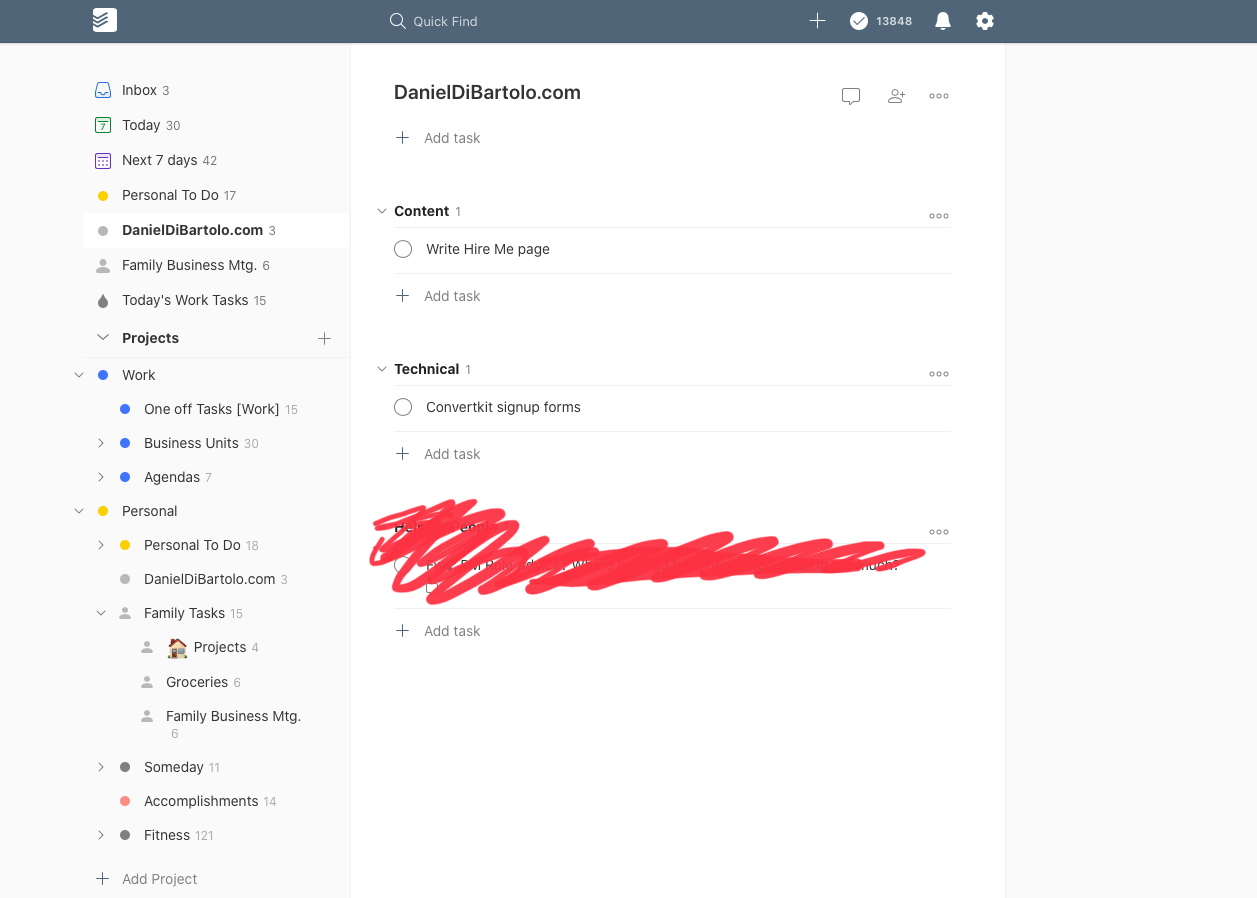
I like it so much that I convinced my wife to make an account and we manage the logistics of our family life through shared projects and a recurring "family business" agenda. Every week we sit down and run through an agenda– we discuss things like our calendar, meal planning, and finances.
I use some of the features from Foundations to format and templatize my workouts in advance. I just show up at the gym and work through my plan.
This isn't a sponsored post. I just love their app and it has a material impact on my effectiveness as a leader, husband, and father. Maybe you'd like it t0o.
Read their excellent blog for more details on their company's approach to designing productivity tools.
Okay, now on to some of my reflections.
2019 Year in Review Analysis
Remember to read my report so this all makes sense. Just hit this link and you'll see the whole thing.
Pretty cool, huh? As best I can tell, they design a beautiful landing page/template to use with your specific productivity data. The page itself is fun, beautiful, is a locked in with their overall brand aesthetic. You can tell they crafted this thing with intentionality. Here's what their CEO said about it:
The team has taken the Todoist yearly review to a new level. We have done these yearly reviews for the last many years — it’s a unique implementation each year with a theme, and each year it’s with a lot more data (billions now!) Check my review here: https://t.co/XF9bdUO8PO
— Amir Salihefendić (@amix3k) January 7, 2020
I completed more tasks this year
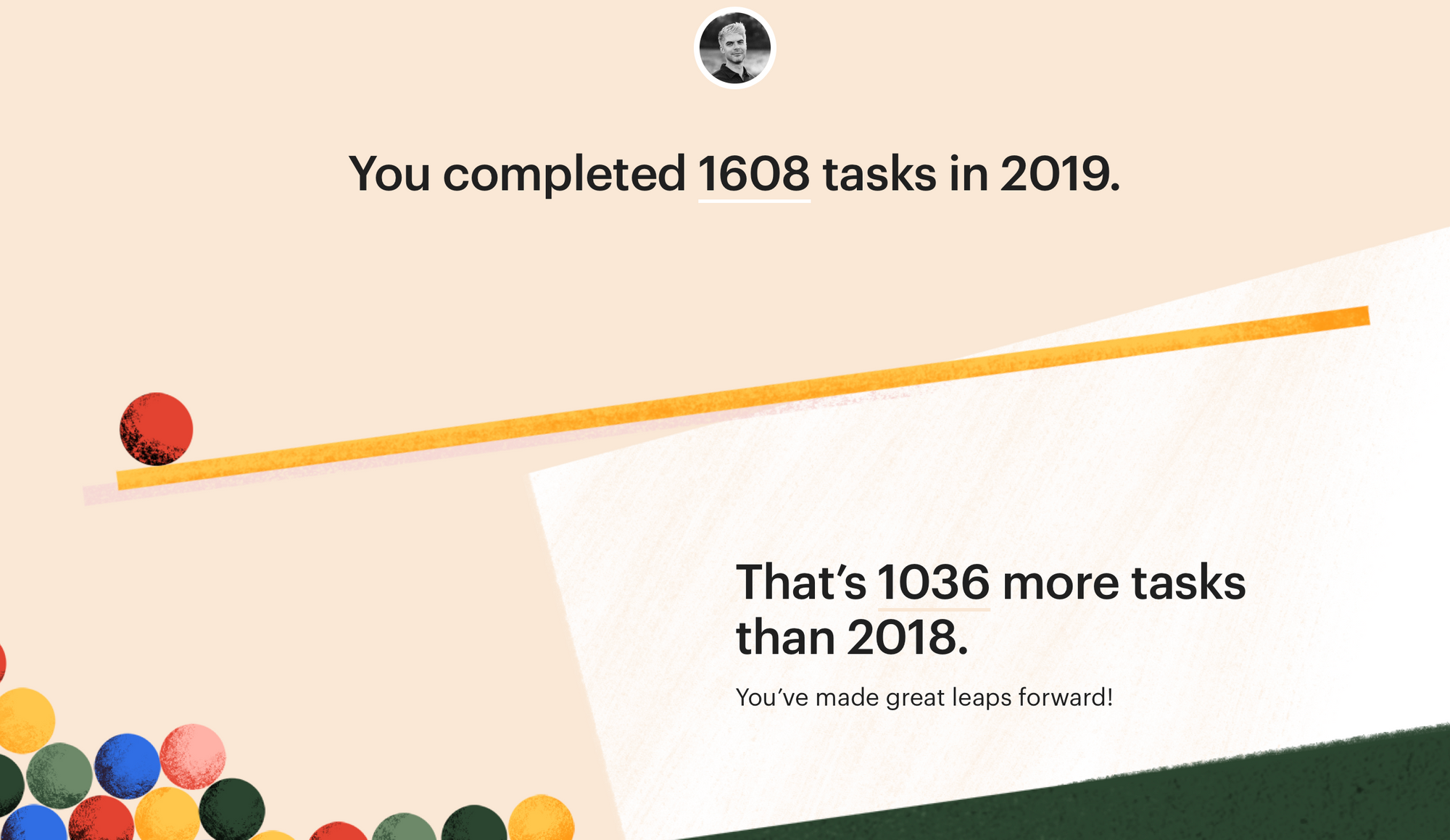
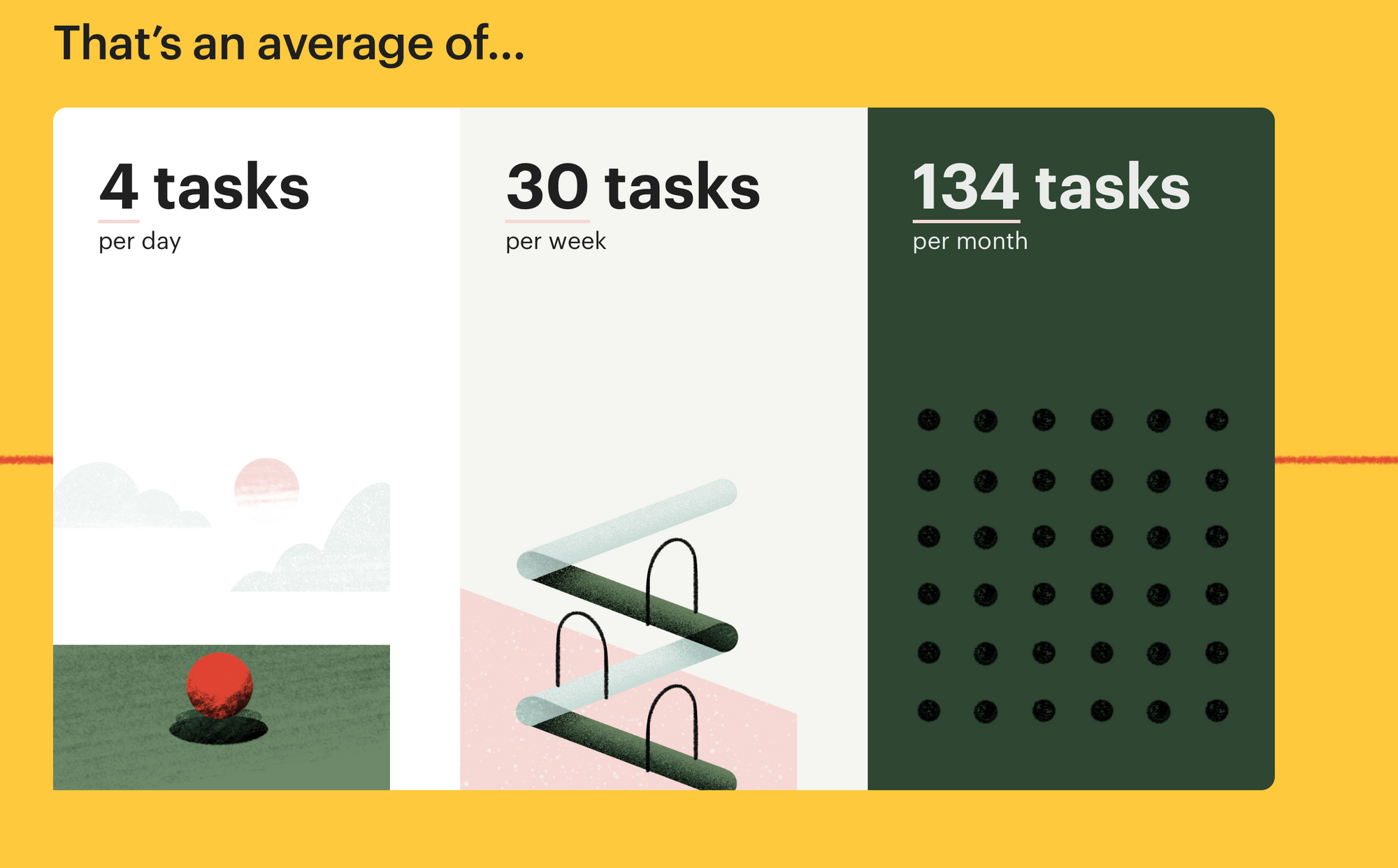
What I think it means:
- This makes sense to me for a few reasons. We implemented our weekly family agenda/checklist this year which introduces more recurrings tasks. Same with my workouts.
- Earlier this year, I got a promotion and lead a major project in addition to my previous responsabilities. Naturally, this meant more discrete units of work for me to plan and complete.
- Volume of tasks isn't really a good metric for anyone's effectiveness. I look at this more like a general diagnostic, only to be taken into account with other data. Who cares if you did a lot of tasks. Was it the *right* work?
- Todoist let's you set a daily goal for "tasks completed". Its a fun way to gamify. My daily goal that I set for myself was 5. I don't know why I picked 5... but I averaged 4 a day. I wonder if I unconsiously optimized to hit 5? Maybe I should set a higher goal and see what happens?
I was surprised at how important some things were
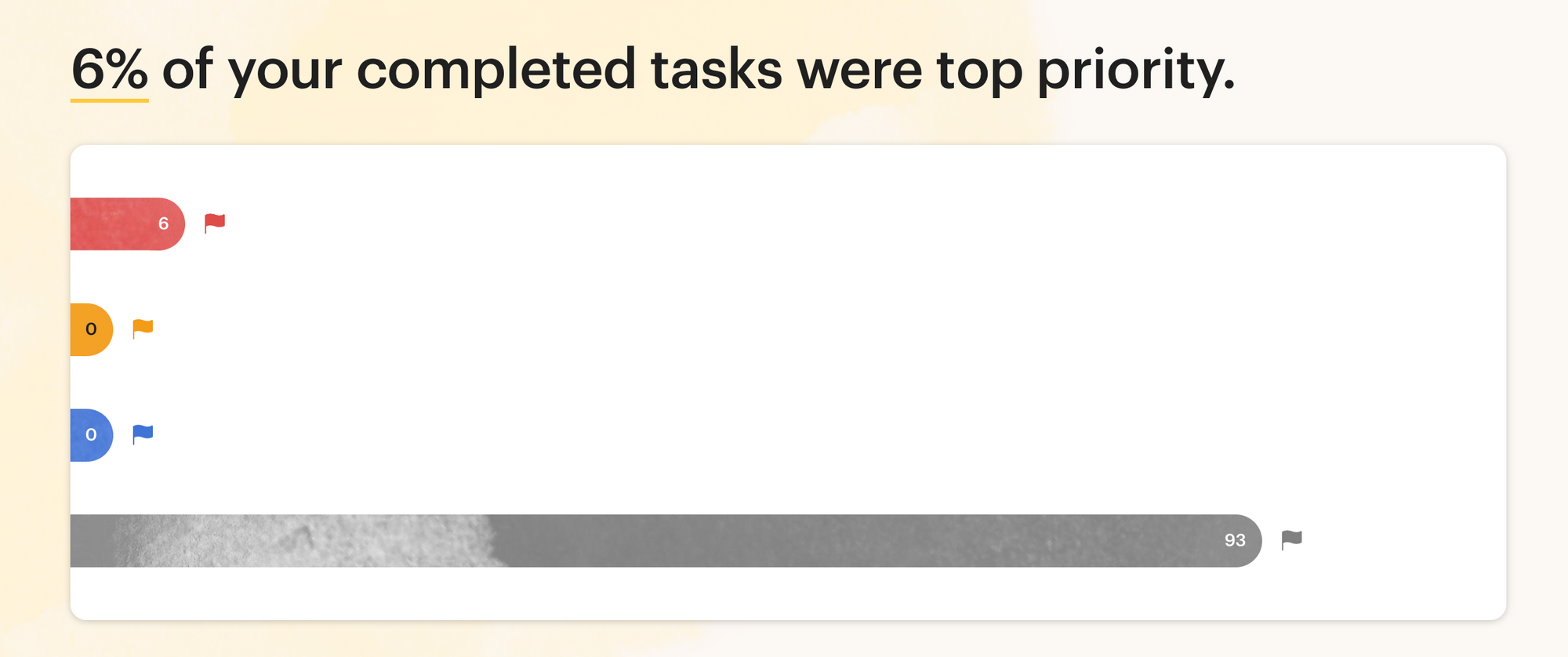
I only ever mark something as "important" if I MUST get that item done on that specific day. I try not to be too reactive, one of the ways I do that is by providing myself lots of runway when I can. I was surprised that my number of top priority items was 6%. Based on my total volume, that's one every 3.8 days.
Mondays are for grinding
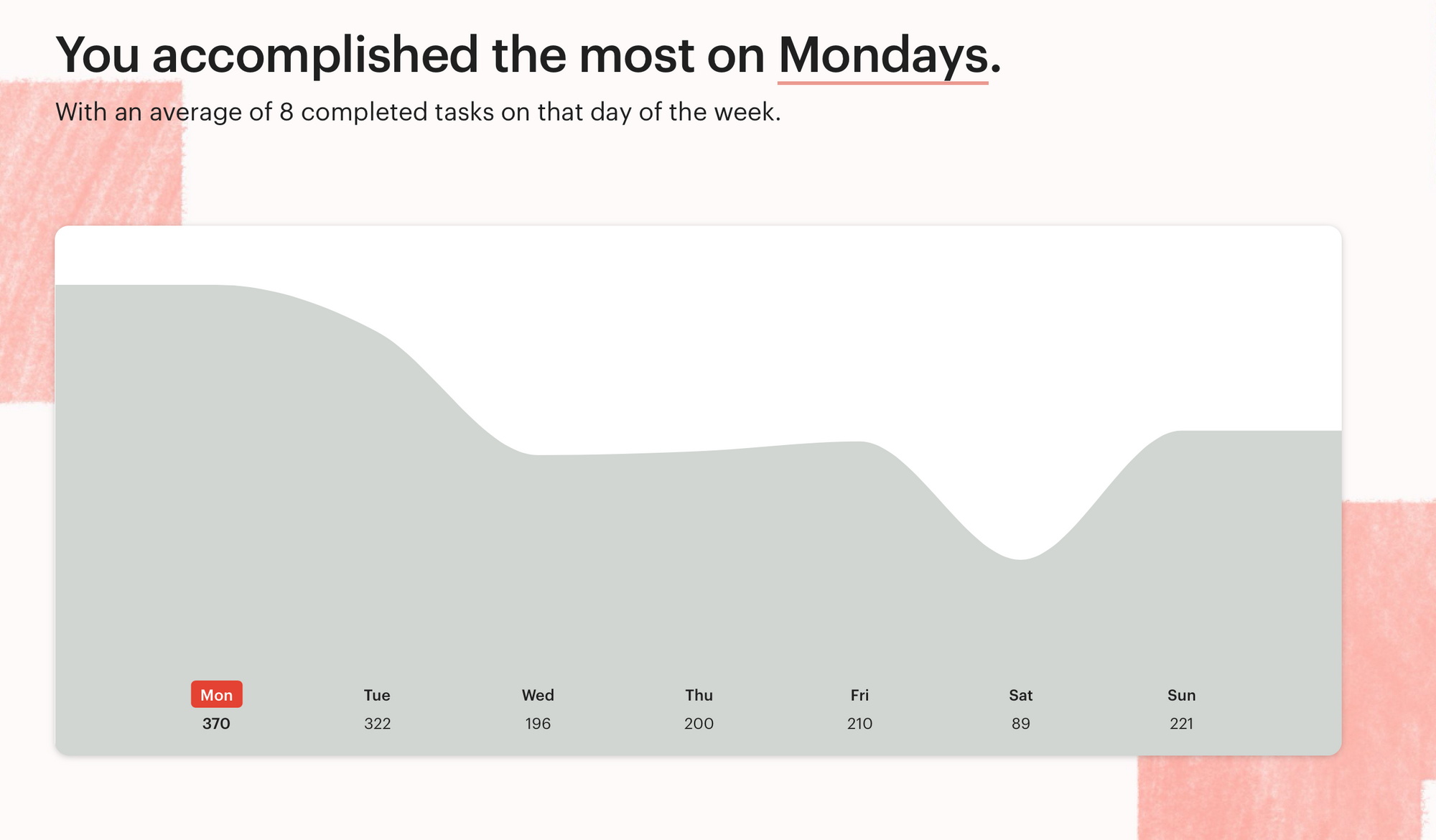
Mondays are big days for me. I hit the ground running. I look at the teams I'm working with, and the outcomes we're trying to produce, and I identify the highest leverage things I can do to move forward. Who can I unblock? Who can I help? What do I need to ship?
And then I get it done. On Mondays I do twice as much volume as an "average" day.
I'm lazy at 4pm
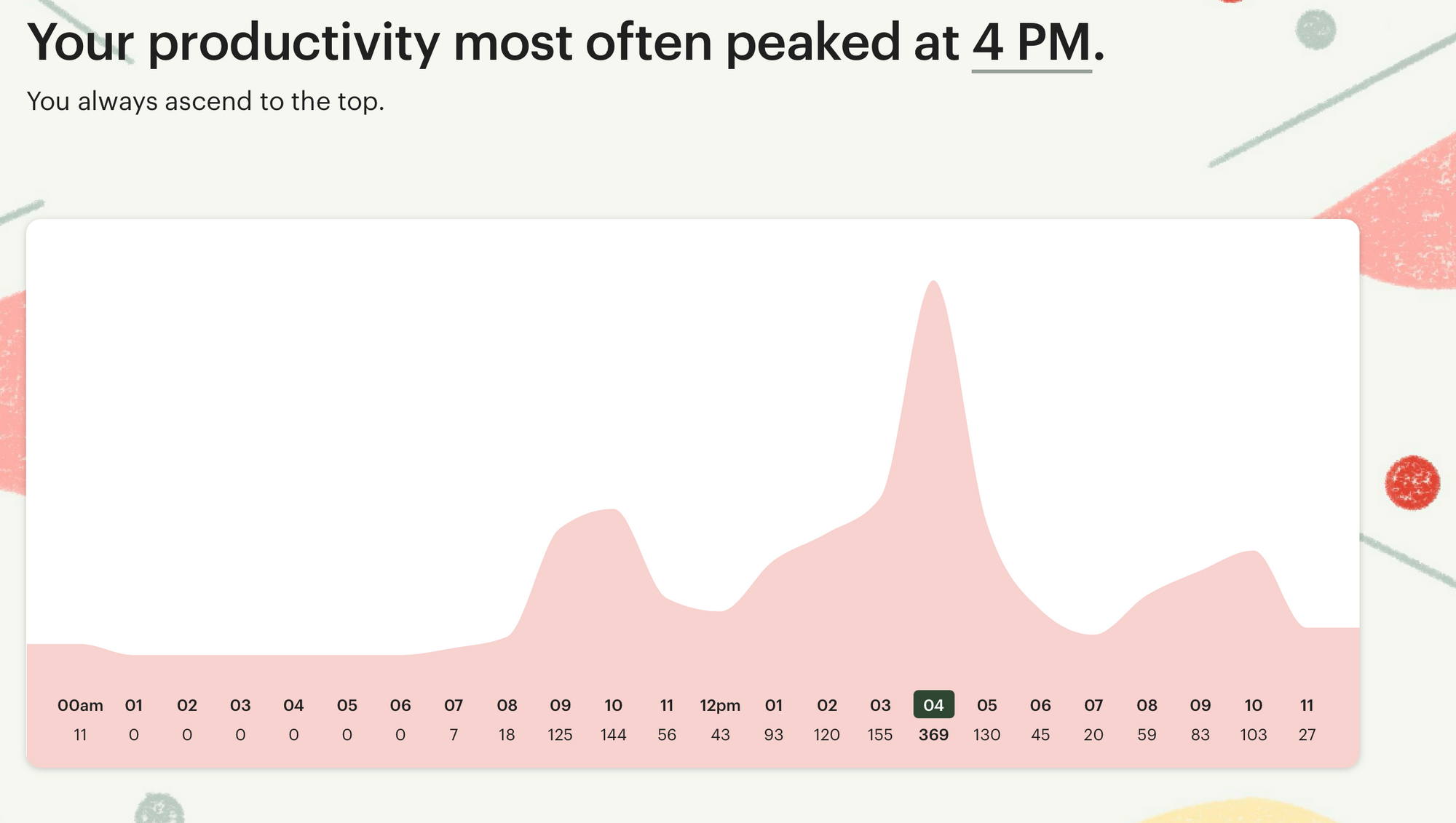
I try to be aware of my energy levels, and to schedule my most creative and mentally involved tasks, my "deep-work', for when I know I can bring peak performance. For me, that's usually mid-morning, around 9-11am. That's when I do the most writing, planning, and strategic thinking.
I intentionally schedule tasks that don't require high mental output for when my energy level is the lowest, around 3-5pm. That's when you'll see me answering emails, creating Jira cases or, working taking care of small, one-off tasks.
I knew what that I'd see more tasks getting done in the afternoon, but I didn't expect to see such a prounounced increase around 4pm. It's possible many of my afternoon meetings end around 4, which would create pressure to get things done before I head home around 5pm.
Speaking of 5pm...
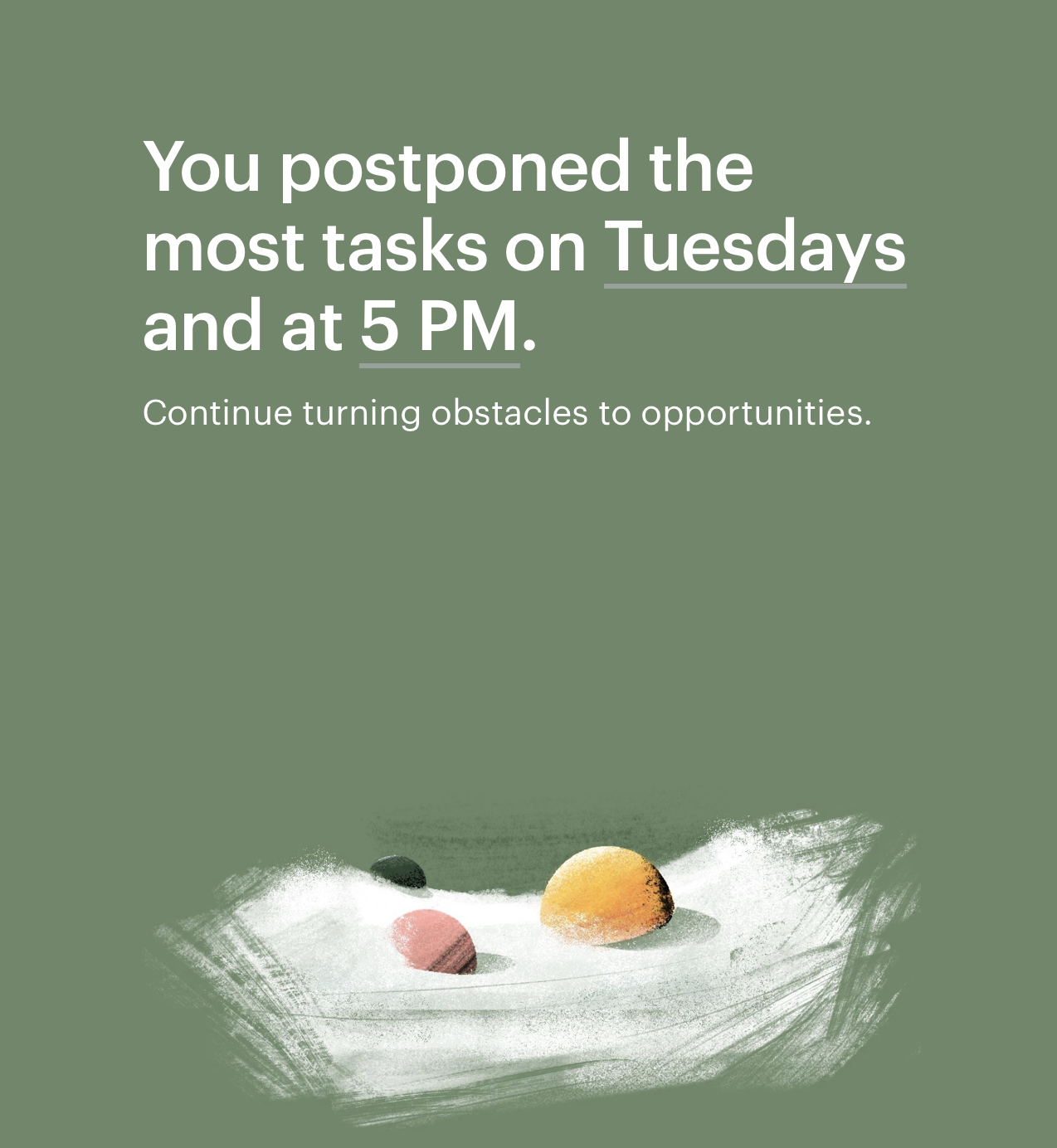
One of the habits I've tried to build as I get better at managing my time and tasks is to do a daily review. I take stock of what I accomplished and what needs to get pushed to a different day.
For tasks that are unimportant (and therefore can get bumped), I'll reschedule them to a future day where I know I'll have capacity.
I'll end my highlights with this totally arbitrary but absolutely ego-boosting metric:
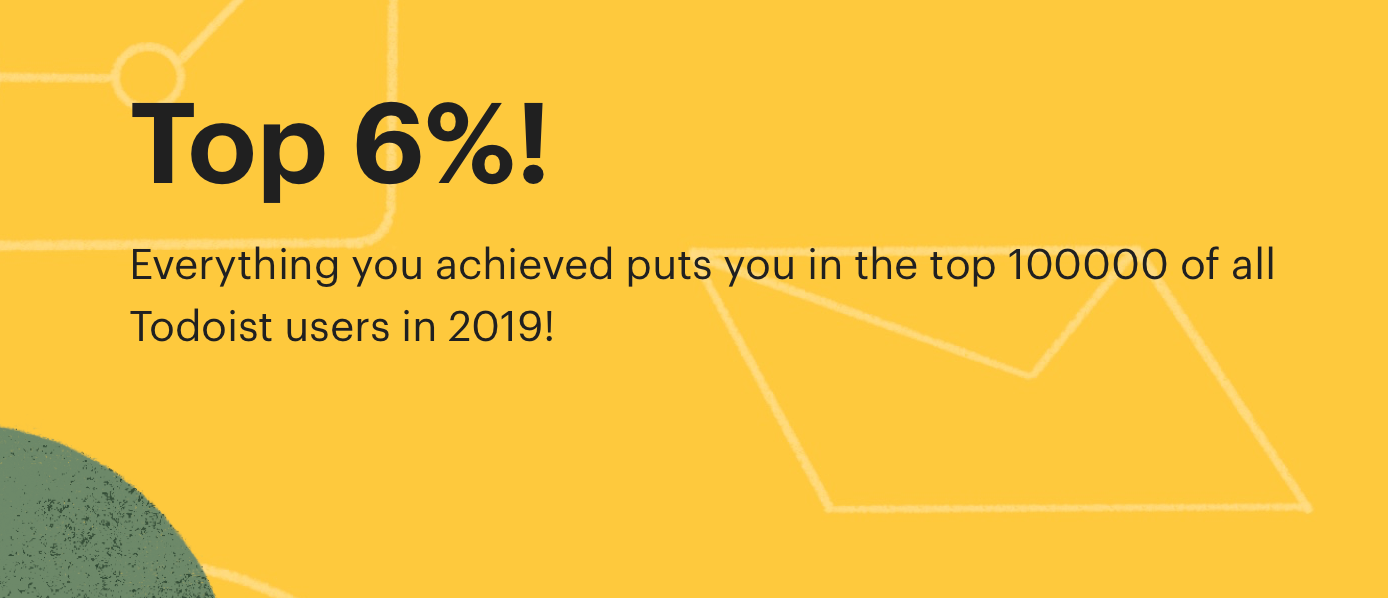
Improving in 2020
As I reflect on this data, and 2019, there are a few areas I'd like to improve upon or double down where I've had success:
- Continue to schedule time for deep-work. I'll continue to block out multiple hours a day for my most important work.
- Schedule less. I postpone a lot of tasks because...well... I scheduled them? Some tasks definitely need a defined date, but many don't. Maybe even most don't. Sometimes I use a due-date as a crutch to side-step the priortization process. I should only assign dates to items that I have appropriately vetted for relative priority.
- Implement a weekly review. I don't have a set time each week where I plan my work, defining what's most important each day in advance. At this point, I probably average every two weeks with that kind of planning. If I was more consistent, I could avoid overcommitting on a given day.
How are you improving in 2020?
Are you a Todoist user who cares to share your review? Do you have any systems or habits for getting stuff done that you're working on in 2020? Send me an email (danieldibartolo dot com) or hit me up on Twitter.
I want to learn from you!
